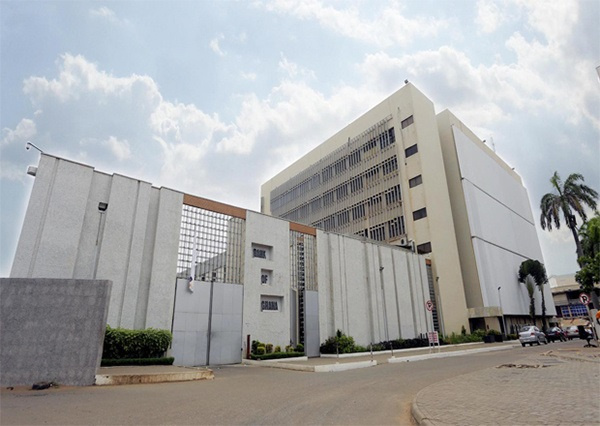In Ghana, the integrity and stability of financial institutions play a crucial role in the country’s economic growth and development. Auditing serves as a vital tool in ensuring transparency, accountability, and trust within these institutions. This blog post aims to delve into the role of audits in safeguarding the integrity of financial institutions in Ghana. We will explore the specific regulations and requirements applicable to auditing banks and other financial entities, examine case studies that demonstrate the importance of audit services in identifying and preventing financial fraud, and discuss future trends and challenges in auditing financial institutions in Ghana.
- The Role of Audits in Ensuring the Integrity of Financial Institutions in Ghana:
Audits are an essential component of maintaining the integrity of financial institutions in Ghana. They provide independent and objective assessments of an organisation’s financial health, internal controls, and compliance with laws and regulations. The primary role of audits includes:
- Ensuring Accuracy and Reliability: Audits verify the accuracy and reliability of financial statements, ensuring that the information provided to stakeholders is trustworthy and reflects the true financial position of the institution.
- Detecting Errors and Irregularities: Audits help identify errors, irregularities, or fraudulent activities within financial institutions, providing an opportunity for corrective actions to be taken promptly.
- Assessing Internal Controls: Audits evaluate the effectiveness of internal controls and risk management systems, helping to identify potential weaknesses and vulnerabilities that could expose institutions to risks.
- Specific Regulations and Requirements Applicable to Auditing Banks and Other Financial Entities in Ghana:
In Ghana, auditing financial institutions is governed by various regulations and requirements. The key regulatory bodies involved in overseeing audits include the Bank of Ghana (BoG), Securities and Exchange Commission (SEC), and National Insurance Commission (NIC). Some specific regulations and requirements applicable to auditing banks and financial entities in Ghana include:
- Bank of Ghana Guidelines: The BoG issues guidelines and directives that outline the minimum standards and expectations for auditing financial institutions, covering areas such as capital adequacy, risk management, and financial reporting.
- International Financial Reporting Standards (IFRS): Financial institutions in Ghana are required to comply with the IFRS framework, which ensures consistent and transparent financial reporting practices.
- Audit Independence and Professional Standards: Auditors conducting audits in Ghana must adhere to the International Standards on Auditing (ISA) and maintain independence in their work to ensure objectivity and credibility.
- Case Studies Highlighting the Importance of Audit Services in Identifying and Preventing Financial Fraud in Ghana:
Several high-profile cases in Ghana have demonstrated the crucial role of audit services in identifying and preventing financial fraud. Two notable examples are:
- The Capital Bank Collapse: In 2017, Capital Bank, a Ghanaian commercial bank, collapsed due to significant financial irregularities. The subsequent audit revealed fraudulent activities, including unauthorized transactions, insider loans, and misappropriation of funds. The audit findings played a vital role in holding the responsible parties accountable and initiating legal actions.
- The Menzgold Ponzi Scheme: Menzgold, a Ghanaian gold dealership company, operated a Ponzi scheme that defrauded thousands of investors. The auditing process revealed that the company was operating without the necessary licences and was unable to meet its financial obligations. The audit findings helped raise awareness about the scheme and prevent further financial losses.
- Future Trends and Challenges in Auditing Financial Institutions in Ghana:
As the financial landscape evolves, auditing financial institutions in Ghana faces several future trends and challenges. Some of these include:
- Technological Advancements: Rapid technological advancements, such as blockchain and artificial intelligence, are reshaping the auditing profession. Auditors need to adapt to new technologies to effectively audit complex financial systems and identify potential risks.
- Increased Regulatory Scrutiny: Regulatory bodies in Ghana are placing greater emphasis on financial institution audits to ensure compliance with evolving regulations. Auditors will need to stay updated with the latest regulatory requirements and demonstrate their expertise in navigating complex regulatory landscapes.
- Data Analytics and Big Data: The availability of vast amounts of financial data presents both opportunities and challenges. Auditors can leverage data analytics tools to analyze large datasets and detect patterns of financial fraud or irregularities. However, effectively managing and analysing big data requires auditors to develop advanced data analysis skills.
- Cybersecurity Risks: With the growing reliance on technology, financial institutions are becoming more susceptible to cyber threats. Auditors need to assess and address cybersecurity risks to safeguard the integrity of financial systems and protect sensitive financial information.
- Talent and Skills Gap: The auditing profession in Ghana, like many other countries, faces a talent and skills gap. There is a need for auditors with strong technical skills, industry knowledge, and the ability to adapt to changing environments. Continuous professional development and attracting top talent will be crucial in addressing this challenge.
Auditing plays a vital role in ensuring the integrity, transparency, and stability of financial institutions in Ghana. By adhering to specific regulations and requirements, auditors help safeguard trust and contribute to the overall economic growth of the country. Through case studies, we have seen how audit services have been instrumental in detecting and preventing financial fraud. However, future trends and challenges, such as technological advancements and increased regulatory scrutiny, require auditors to continually adapt and enhance their skills to effectively audit financial institutions and safeguard the trust and stability of Ghana’s financial sector.



